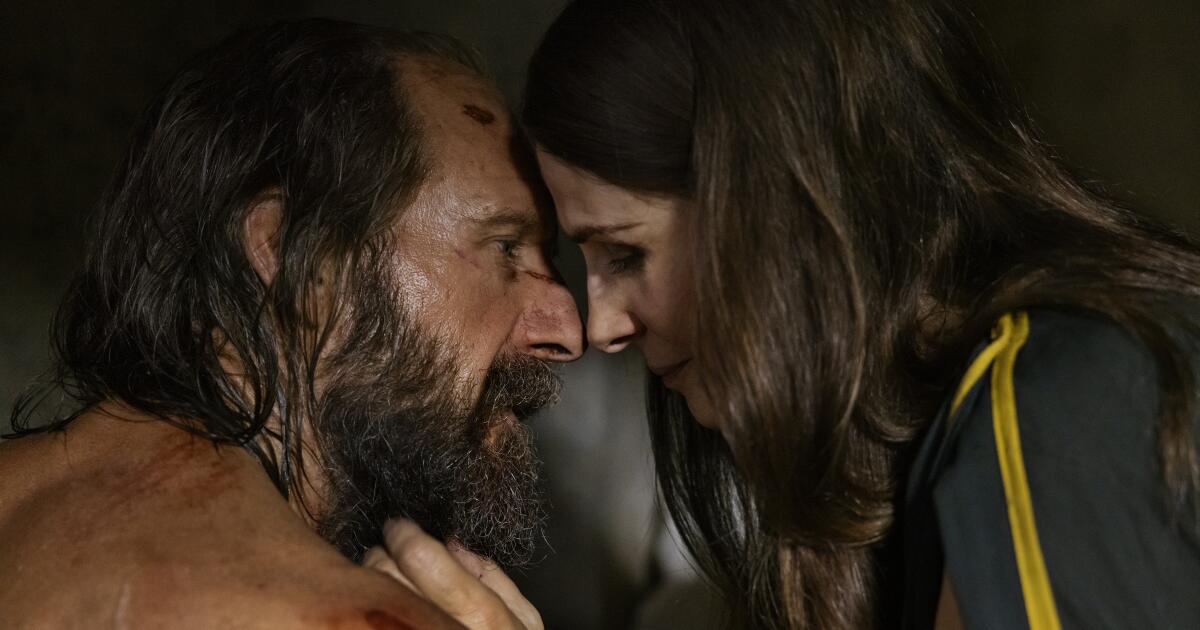Uberto Pasolini tackles Homer’s epic poem “The Odyssey” with his intimate and muscular adaptation “The Return.” Despite the centuries-long significance of the text, not many films have tackled its events directly, and Pasolini focuses on Odysseus’ “nostos” or his return to the island of Ithaca after years fighting in the Trojan War and his long way home.
Most filmmakers adapt “The Odyssey” obliquely, transposing the notion of a complicated journey to settings far away from ancient Greece (e.g., “O Brother, Where Art Thou?”; “Cold Mountain”). But Pasolini has chosen to set the movie on the island of Ithaca during the time of Odysseus, even if there is a certain modernity to the style and storytelling.
“The Return” proves to be an acting showcase, especially for stars Ralph Fiennes, who plays Odysseus, and Juliette Binoche as his wife, Queen Penelope, the pair reuniting on screen 32 years after they starred in “Emily Brontë’s Wuthering Heights,” and 28 years after “The English Patient.”
Spending most of the movie clad in nothing more than a shroud or loin cloth (often not even that) and eventually spattered blood, Fiennes delivers what seems on the surface to be a performance diametrically opposed to his other high-profile turn this fall, in Edward Berger’s “Conclave.” But there are some striking similarities between the two roles. Both Cardinal Lawrence and Odysseus are burdened to accept a title they resist, expressing a quiet anguish about their responsibilities.
Many men want to be the Pope in “Conclave,” many men want to be the king in “The Return,” and yet both of Fiennes’ characters are reluctant to bear the mantle, even though in “The Return,” it is the crown — and family — that Odysseus left behind for war. In the many years since he’s been gone, men have amassed on Ithaca, pressuring Queen Penelope to pick a new husband to be king, seeking access to her wealth. By the time Odysseus washes ashore, battered and weakened, even her son, Telemachus (Charlie Plummer), has grown tired of her indecision, hoping to move on from the limbo of waiting. The bachelors grow more impatient, more aggressive, moving closer to the queen, while the anonymous Odysseus, seen as nothing more than a tramp, is granted shelter and care by a pig farmer (Claudio Santamaria).
There’s a certain theatrical quality to “The Return” and an unadorned beauty to the simplicity of the filmmaking, relying on the aesthetics of nature and the palace location where this chamber piece is set. The script, by Pasolini, Edward Bond and John Collee, focuses on the emotional torment of the central trio of characters, and the shame and weight of returning home from war a changed person, the pain of a family not knowing their loved one’s fate. The minimalist design eliminates distractions and draws our attention to these core elements of the story.
While “The Return” provides a showcase for many of the supporting character actors, including Santamaria and Marwen Kenzari as one of Penelope’s suitors (as well as a showcase for many ripped torsos on the younger actors), the film shines when it’s simply Binoche and Fiennes facing off, especially in scenes where Penelope pretends not to recognize her husband, trying to force him to step forward into his rightful place. Each actor does their best work wordlessly, the fluttering of a throat or a downward gaze speaking volumes.
The film does struggle to break out of a limited dramatic register, however, even though it feels like it’s continually building toward an explosion. While there is an outburst of violence, it never reaches the operatic height one might be expecting — or hoping for. Nevertheless, there’s a hushed profundity, especially in Binoche and Fiennes’ performances, expressing the kind of unspeakable grief and trauma one brings home from the battlefield, and what those who remain home suffer in absence. Getting at the heart of those emotions in “The Return,” Pasolini reminds us why “The Odyssey” continues to endure.
Katie Walsh is a Tribune News Service film critic.

